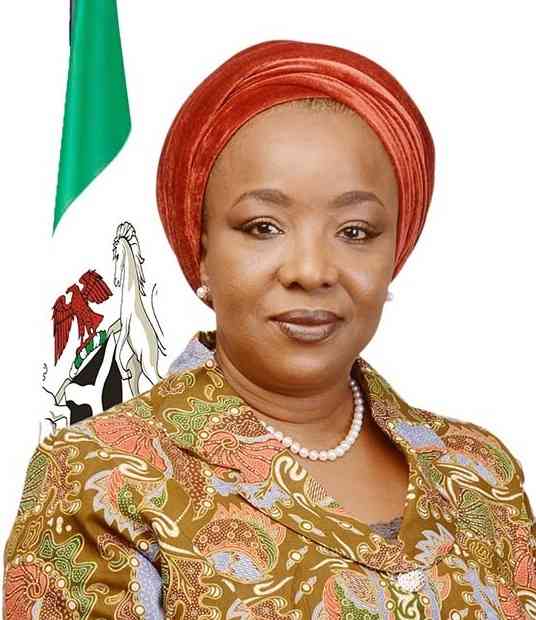
The Minister of State for Environment, Barr. Sharon Ikeazor, has said the Federal Government is strengthening its management of climate-related development challenges through appropriate policies and institutional arrangements that will mainstream climate change into its development priorities.
She made this assertion at a town hall broadcast meeting on environmental issues with the theme – ‘Climate change and its impact on security and livelihood’ organized by the Living Earth Media today (June 24) in Abuja, saying government also encouraged the implementation of climate change mitigation and adaptation.
“Adaptation to climate change entails taking the right measures to reduce the negative effects of climate change by making appropriate adjustments and climate changes. Nigeria’s adaptation programme is focused on reducing vulnerabilities of our people and promoting community and ecosystems’ resilience to the impact of climate change while ensuring that women, girls and other vulnerable groups are engaged and involved in planning and implementing long-term climate change adaptation interventions.
“Specific interventions will be targeted at agriculture and food security, forestry and biodiversity, water resources, energy and infrastructure, health, human settlement, industry, transportation, communication and security that are considered to be the most vulnerable sectors to climate change in Nigeria and which directly affect livelihood and security,” sha said.
Represented by the ministry’s director of human resources management, Mr. Lawrence Adigwe, Ikeazor urged participants to reflect on interventions that would ensure a sustainable environment, adding their contributions would go a long way in ensuring an environment in harmony with nature.
In his remarks, the director-general of the National Biosafety Management Agency (NBMA), Dr. Rufus Ebegba, identified agriculture as one of the major contributors of green house gas emissions which leads to climate change, saying sustainable agriculture through science and technology would go a long way in mitigating the negative effects of climate change.
He named flood, draught and pests as some of the effects of climate change, science, pointing out that technology would drive the agriculture sector to develop crops that could adapt to climate change.
According to him, biosafety plays a very crucial role to ensure these climate smart crops developed through science and technology innovations are safe to humans, animals and the environment.
Similarly, the Etsu of Kwali, Dr. Shaban Audu, identified climate change as the intensifier of clashes between farmers and herders in the country, saying deforestation and draught pushed herders out to look for feed for their cattle, leading to incessant clashes between the duo.
He urged government to look for lasting solution to the menace which is tearing the fabrics of unity in the society.
In his contribution, the director-general of the Nigerian Hydrological Agency, Engr. Clement Nze, said the gathering would help in conveying the importance of sustainable environmental practices to the grassroot.
He stressed that stopping negative environmental practices like blocking the drainages or building on the waterways could be relayed to the grassroots through townhall meetings which would bring together leaders of the people like the royal fathers and government for proper sensitization and crossbreed of ideas.
Earlier, the convener of the meeting, the Living Earth Media program coordinator, Tracy Uzoigwe, said the rationale of the meeting was to bridge the communication gap between policymakers and the communities impacted by the effects of climate change. She explained that the meeting provided a unified platform to discuss environmental challenges and proffer solutions to them.


